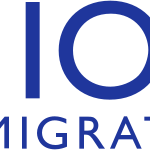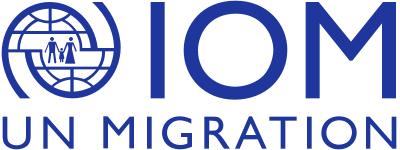
International Organization for Migration
In 2024, The government of Iraq announced its decision on closure of IDP camps in KRI and return of Yazidi community to Sinjar by July 2024. In parallel, the repatriation of Iraqis from NE Syria to communities in Ninewa, Salahaldin and Anbar Governorates continue to take place. Effective access to reparations provided for by the Law 20 of Compensation to Victims of Military Operations, Terrorist Operations, and Military Mistakes (Law 20), is a potent mechanism in alleviating grievances of affected communities and support process of rehabilitation and healing and rebuilding social cohesion and trust between communities and institutions.
As of 2024, victims of military operations, mistakes, and terrorism face numerous obstacles in accessing Law 20 reparation scheme. Numerous victims of crimes committed by ISIS, and those who endured suffering in the context of liberating operations in affected areas remain to date without access to compensation schemes, despite the fact that Government of Iraq has a robust reparations scheme for various types of human and property losses, pursuant to the Law 20, including killed missing persons, injuries and property losses.
Iraq’s compensation scheme for victims of military operations, terrorist operations, and military mistakes through Law 20 is marred with significant barriers accessing the law benefits, such as heavy burden of proof on victims and documents required, long process and lack of visibility and transparency of the process, and – in case of compensation for property damage – delay in payments.
Through the scope of this consultancy, IOM aims to improve knowledge of the status of beneficiaries’ access to compensation scheme, needs, and key barriers to access to Law 20 compensation schemes amongst victims from Ninewah, Sinjar, Anbar, and Salah Al Din. The aim of the research is to inform IOM, the government and stakeholders on those barriers and provide recommendations both for facilitating access to compensations scheme and ensuring a sustainable and stable returning process.
Under the general guidance of the Head of the Peacebuilding and Stabilization Division (PSD), and the direct supervision of the Reparations Officer, and in close technical coordination and guidance of the Head of the PSD Tribal engagement and Legal Teams, incumbent will perform following tasks:
Core Functions / Responsibilities
- The Consultant will provide overall guidance, including technical preparation and design and quality control of desk and field research of the Data Collection Team (international consultant and three national researchers) tasked with conducting assessments on implementation of the Law of Compensation for victims of military operations, terrorism, and military mistakes No 20 of 2009 (Law 20) in several areas of return. [continuous throughout the contract]
- The Consultant will prepare and collate data from the desk research on implementation of the Law 20 in areas of return, conducted by national researchers. [3 weeks upon signing the contract]
- Following the desk research,the consultant will work together with national researchers to produce a methodology for the research on challenges and gaps in accessing Law 20 scheme for beneficiaries in Ninewa/Salahaldin/Anbar, with a comparative lens between three areas and plan of field research that covers key informant interviews, FDGs and surveys in KRI and federal Iraq. These informants will include representatives of key institutions relevant for implementation of the Law 20, and relevant CSOs and UN actors. Methodology and research plan will be presented to the legal, transitional justice and tribal engagement team of IOM Iraq to ensure there is common understanding of objectives, tools, available data sources, data collection methods, and structure of the final report. [4 weeks upon signing the contract]
- Following endorsement of the research plan, the consultant will lead and guide the team of researchers to perform the field research in relevant locations of assessments and conduct reports accordingly. [7 weeks upon signing of the contract].
- The consultant will review and unify the presentation of the research reports prepared by the team of researchers and guide them to finalize area specific report and findings. . [8 weeks upon signature of the contract]
- Upon completion of the area specific research, the consultant will conduct a comparative analysis based on the area specific research and combine reports into a final comprehensive report with comparative analysis and specific findings for stakeholders. [10 weeks]
- The consultant will organize a debriefing with the Transitional Justice, Legal Team and Tribal Engagement team to discuss and present findings, conclusions, and recommendations [11 weeks]
- The consultant will incorporate feedback from a peer review process, including subject matter colleagues who have reviewed the report. If deemed necessary, the consultant should propose additional research questions to address gaps identified or to delve deeper into specific aspects of the findings, all while aligning with the overall scope of the consultancy. The revised version of the report, taking into account the peer review comments, is expected to be a polished and refined document and present the final report to IOM teams. [13 weeks]
- The consultant will provide technical support in preparation of the workshop to present the findings and recommendations of the report to government stakeholders and other actors. [16 weeks]
- The consultant will provide other related forms of technical assistance in line with this ToR.
Required Qualifications and Experience:
Education, Experience and/or skills required
- Master’s degree in law, Human Rights, International Relations or other related fields in Social Sciences from an accredited academic institution with three years of relevant professional experience;
- At least five years of experience, including research and comparative analysis of implementation of transitional justice mechanisms, humanitarian and recovery contexts, diversity and inclusion policies, or other relevant policies.
- research in, Knowledge of transitional justice schemes and programs in the MENA region
- Knowledge of Iraqi legal and judicial framework, displacement contexts and specific understanding of Law 20 compensation scheme.
- Proven expertise in assessment design and reporting.
- High knowledge and understanding of the context and sensitivities in different areas in Iraq in specific areas of returns, as well as Iraq and the regional context in general.
- Ability to travel within Iraq .
- Ability to lead a team of national consultants and field staff to support with the data collection phases of the research.
- Experience in conducting interviews and data collection and analysis thereof.
- Full command of spoken and written English and understanding of Arabic language is required. Command of Kurdish would be an advantage.
Travel required:
- Yes
Languages:
- Fluency in English language is required.
- Fluency in Arabic language is an advantage.
Competencies
Values
- Inclusion and respect for diversity: respects and promotes individual and cultural differences; encourages diversity and inclusion wherever possible.
- Integrity and transparency: maintains high ethical standards and acts in a manner consistent with organizational principles/rules and standards of conduct.
- Professionalism: demonstrates ability to work in a composed, competent and committed manner and exercises careful judgment in meeting day-to-day challenges.
Core Competencies – behavioural indicators
- Teamwork: develops and promotes effective collaboration within and across units to achieve shared goals and optimize results.
- Delivering results: produces and delivers quality results in a service-oriented and timely manner; is action-oriented and committed to achieving agreed outcomes.
- Managing and sharing knowledge: continuously seeks to learn, share knowledge and innovate.
- Accountability: takes ownership for achieving the Organization’s priorities and assumes responsibility for own action and delegated work.
- Communication: encourages and contributes to clear and open communication; explains complex matters in an informative, inspiring and motivational way.
The application should include:
- Motivation letter
- Profile/CV highlighting the consultant’s qualifications and relevant experience;
- One examples of similar 1) tools and 2) reports developed under previous assignments;
- A detailed workplan based on the deliverables listed in the TOR;
- Two references who can be contacted if the application proceeds to the final selection stage;
- Detailed workplan outlining days needed for each deliverable.
How to apply
Interested candidates are invited to submit their applications via this link:
https://iraqdatacenter.iom.int/Vacancy/Apply/EOI2024IRQ131
In order for an application to be considered valid, IOM only accepts online profiles duly completed. Only shortlisted candidates will be contacted.
deadline: 22-May-24

